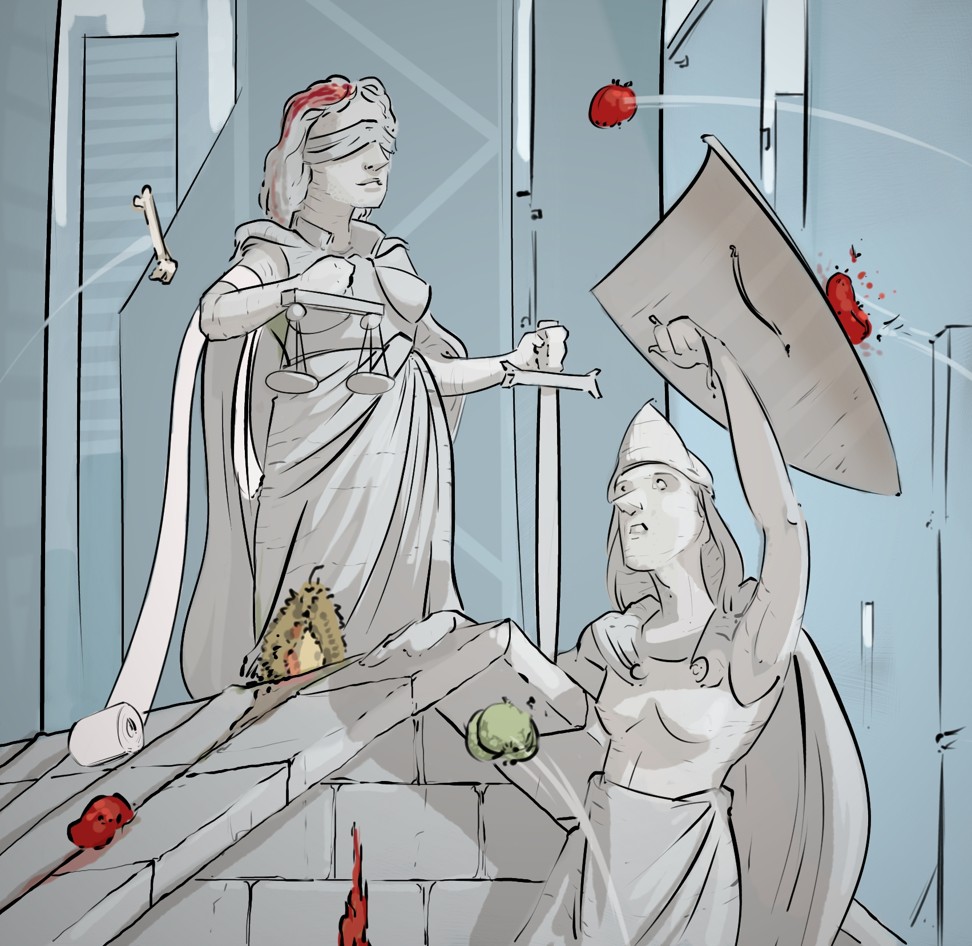
Why Hong Kong’s judges may be set for yet another stormy year in 2018
Cliff Buddle says after a year of controversies over high-profile rulings, 2018 will be even more challenging for the Hong Kong judiciary, with final appeals and new politically sensitive cases up for hearing. Which is why supporting its independence is paramount
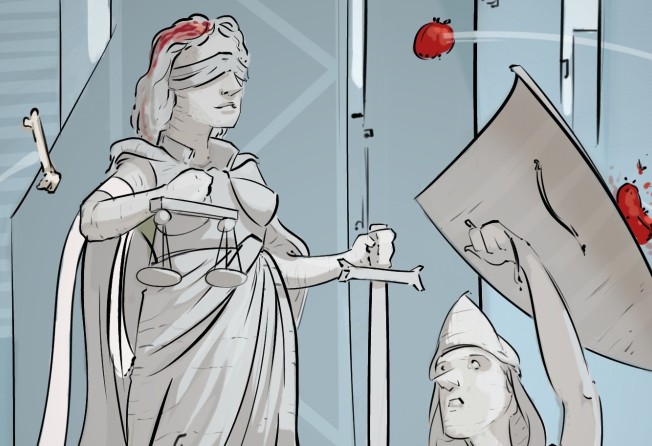

Five weeks later, the courts were plunged into what was to be the first of many controversies this year, when seven police officers were jailed by a British judge for beating up a pro-democracy activist during the Occupy protests of 2014.
That decision sparked cries of outrage from supporters of the police officers. The judiciary was mocked in public, foreign judges were accused of being too liberal, and one critic on social media even called for the judge in question to be beaten up.
Sadly, this was only the beginning. This year has, more than any other since Hong Kong’s return to China in 1997, seen the city’s courts operate in a highly charged political environment, in which their judgments have come under attack.
At times, the reaction has been more akin to a football match. The view taken of this or that judgment has often seemed to depend on which side you support and whether your “team” is deemed to have won or lost the case.
Careful scrutiny of the court’s reasoning has often been drowned out by political slogans and abuse.
The pressure on the judiciary reached a peak in August, with the jailing of Joshua Wong Chi-fung, and two other student leaders involved in the Occupy demonstrations. This prompted allegations that appeal court judges were politically biased. The case attracted international attention; concerns were expressed by prominent overseas lawyers about threats to the city’s judicial independence. They suggested the courts were at risk of becoming subservient to Beijing.
Watch: Three pro-democracy student leaders jailed
These developments are worrying because the survival of Hong Kong’s legal system, so different to that of mainland China, depends on public confidence in the judiciary being maintained. The perception is important, even if it does not reflect the reality.
With football, any meaningful assessment can only be made at the end of the season. Similarly, the judiciary cannot be judged on a single case. And, when the year is viewed as a whole, there is little evidence to suggest the courts have been doing anything other than exercising their judgment independently, in accordance with legal principles.
The courts faced numerous cases arising from the Occupy protests. Their decisions have, at various times, angered either critics or supporters of the demonstrations. Different judges have applied or interpreted the law in different ways. Some judgments might be described as liberal and others as conservative. We may agree or disagree with a particular ruling, but this is what you would expect from an independent judiciary. The judges are human beings, not computers. They follow legal principles, but their approach may lead to different outcomes. And the decisions of all, except the Court of Final Appeal, are open to appeal.
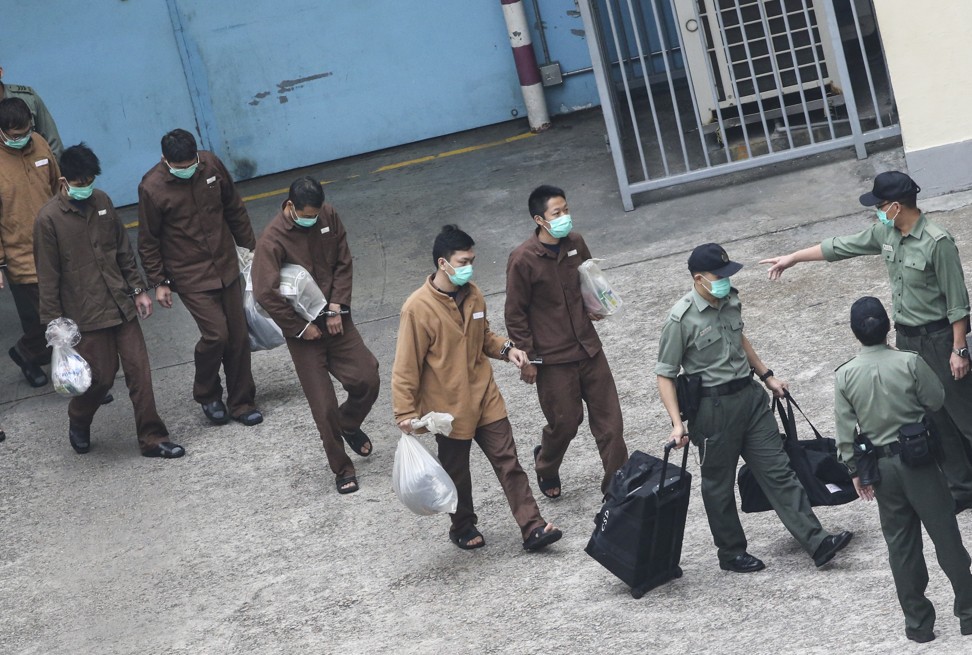
Concerns that the courts are now willing to do the government’s bidding should have eased in recent weeks. A former senior police officer was convicted this month of beating a member of the public during the Occupy protests. Also this month, four opponents of jailed student leader Nathan Law Kwun-chung were imprisoned for assaulting him at the airport.
Meanwhile Law, Wong, and fellow student activist Alex Chow Yong-kang, have all been released from their controversial jail terms on bail by the Court of Final Appeal. Their challenge to the sentences will be heard by the top court in January.
But this does not mean that all is well as we look ahead to 2018. There is a need for those involved in politics, both inside and outside government, to reflect on this year’s events.
The judiciary has come under pressure largely because of divisions in society sparked by the Occupy protests. The civil disobedience movement, which saw streets occupied for 79 days, led to many politically charged cases coming before the courts. The leaders of that movement are among those currently on trial.
But there are other developments which have had an impact on the judiciary and the public perception of it. Beijing’s interpretation of the Basic Law, Hong Kong’s mini-constitution, in November last year, pre-empted a court ruling on the legality of lawmakers’ oaths. It forced the hand of the judges and undermined their independence. The repercussions of that decision continued to be felt this year.
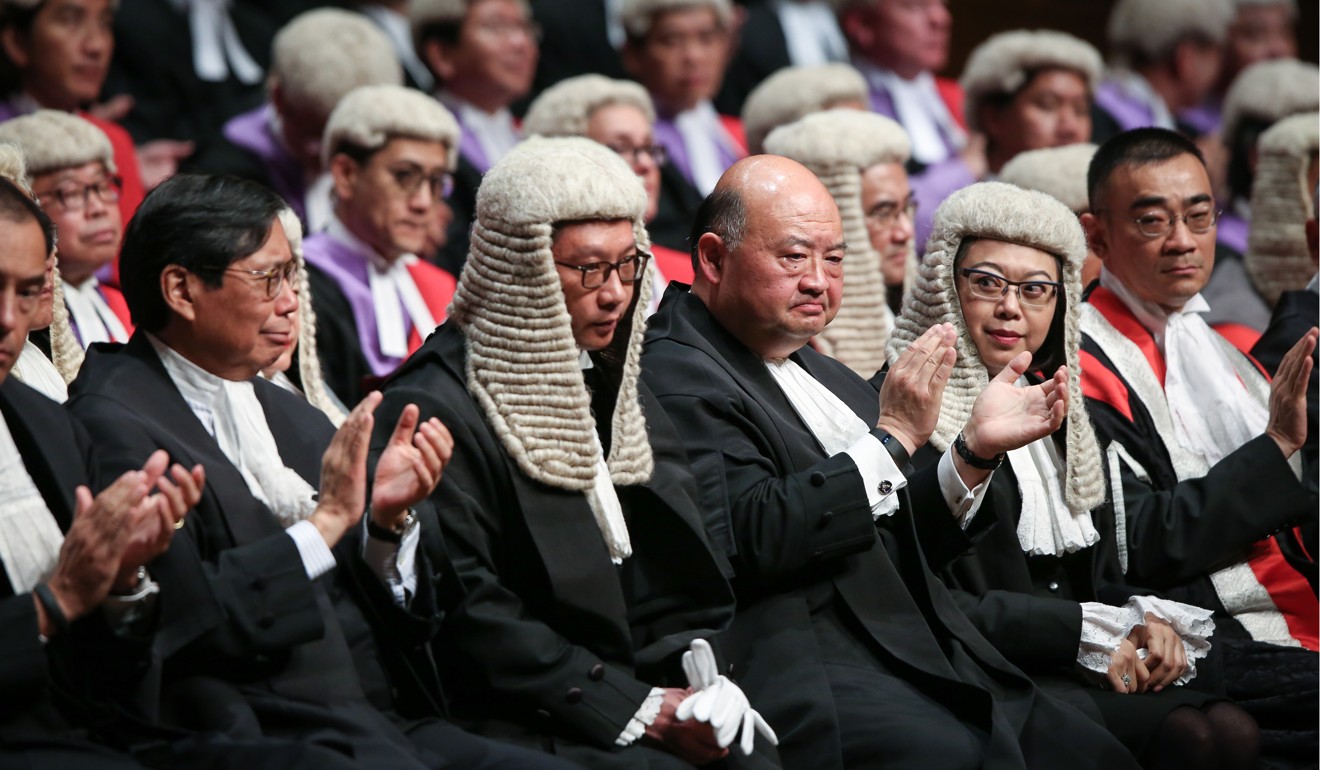
Two radical lawmakers were, as a result, disqualified in 2016. The government then pursued legal actions against four more pro-democracy lawmakers, including Law. They were all banned in July.
Judgments should be open to criticism, but fair consideration must be given to the reasoning used by the judges
The interpretation signalled the intention of Beijing to use legal means to crack down on dissent in Hong Kong, especially the small but vocal pro-independence movement. We can expect 2018 to be an even more challenging year for the courts.
Cases which caused controversy this year are working their way through the appeal process. Final judgments can be expected in 2018. There are also likely to be new cases which are politically sensitive.
Fresh legislation making it a criminal offence to disrespect the national anthem will, almost certainly, be challenged in court when passed. Plans to apply mainland laws at a border checkpoint in Hong Kong for the high-speed rail link to Guangzhou will also be open to judicial review. There will be no respite for the courts.
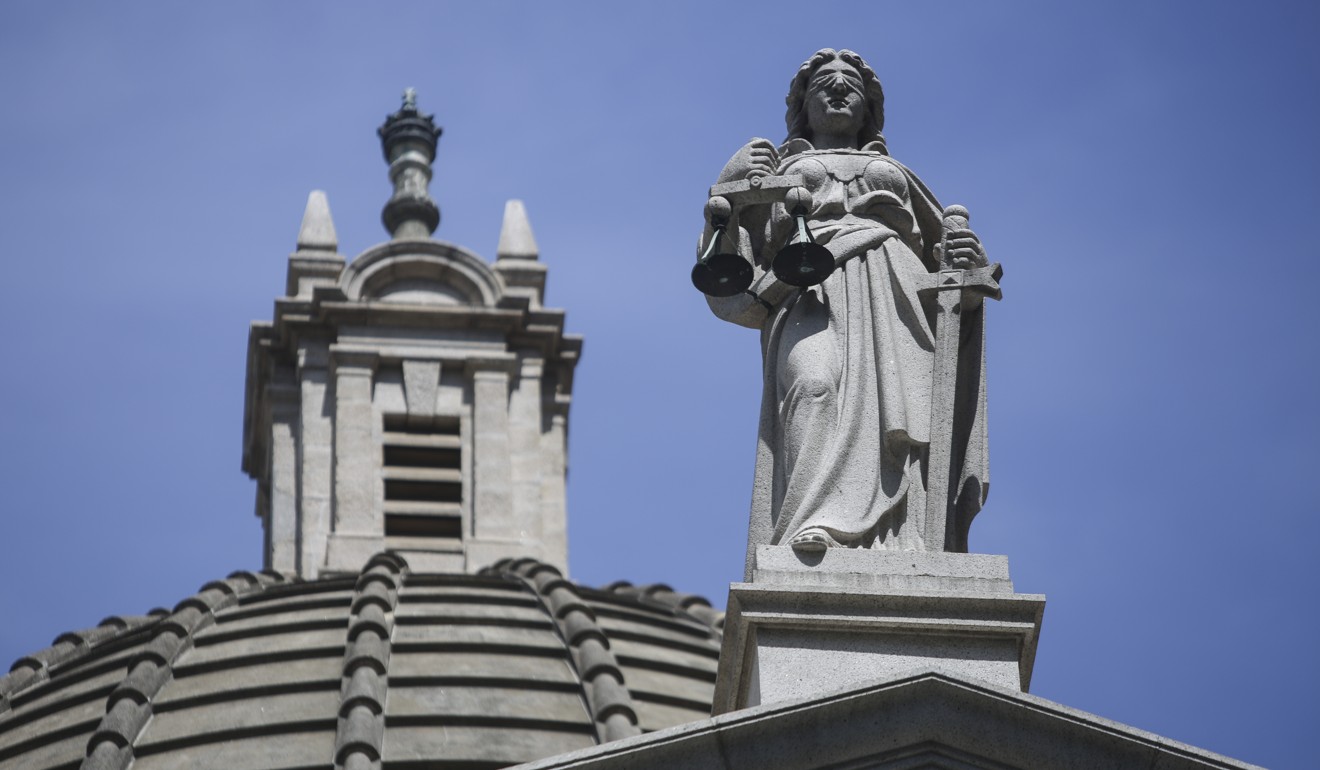
With that in mind, it is important to heed Mr Justice Geoffrey Ma Tao-li’s words at the opening of the legal new year. When he referred to the statue of justice, he said the blindfold symbolises the equal treatment of all by the courts, regardless of their status, the scales represent fairness and the balancing of different factors, while the sword signifies the power of the courts to impose sanctions and to strike down laws or government actions which are unconstitutional.
The central and local governments, as well as the general public, must support the independence of the judiciary, even if they disagree with some of its rulings. Judgments should be open to criticism, but fair consideration must be given to the reasoning used by the judges. The abuse and the threats must stop.
As for the judges, Hong Kong expects them to continue to have the courage to decide cases in accordance with the principles represented by the statue of justice.
Given the political climate, they will probably need a shield as well as the sword and scales.
Cliff Buddle is the Post’s editor of special projects